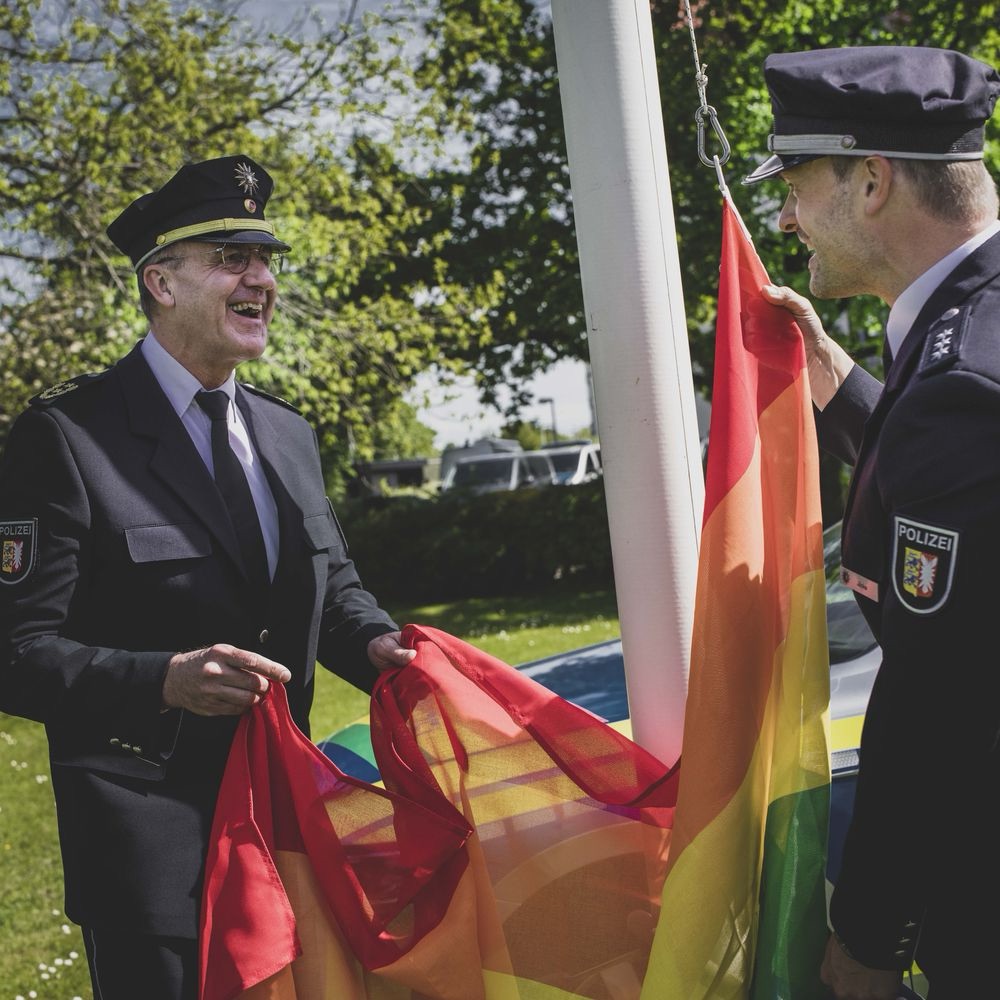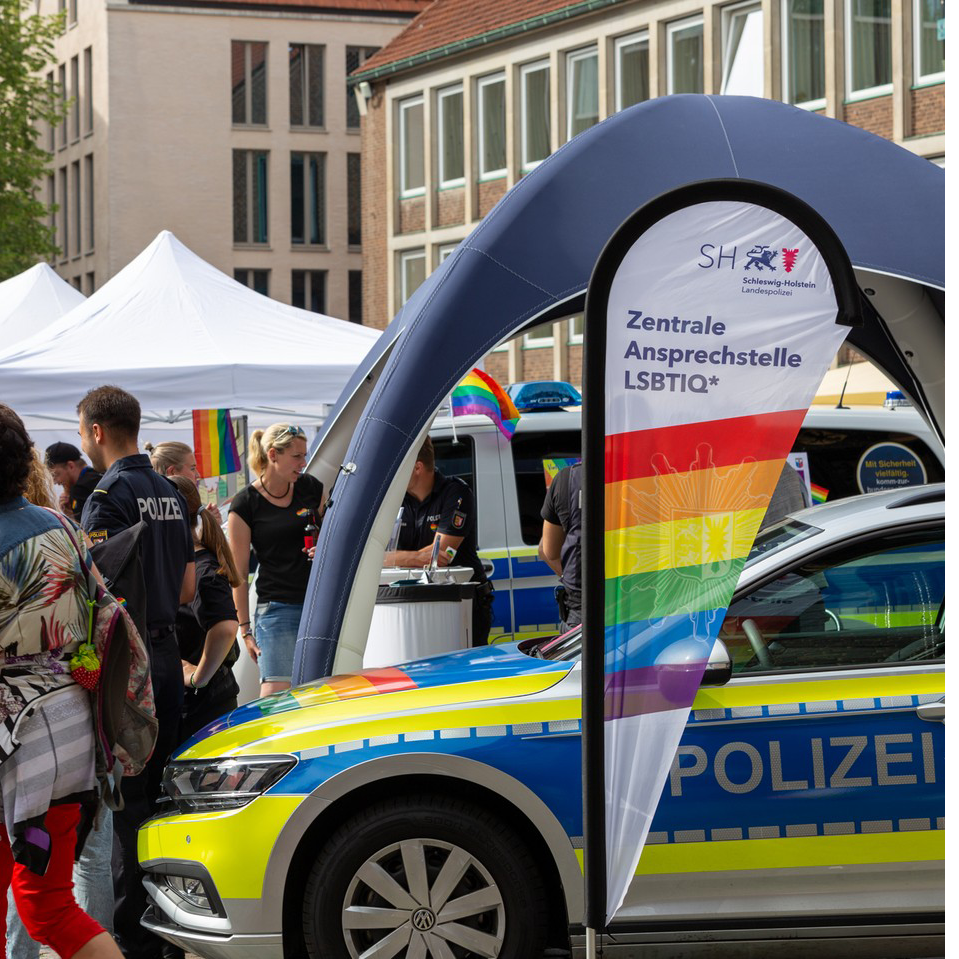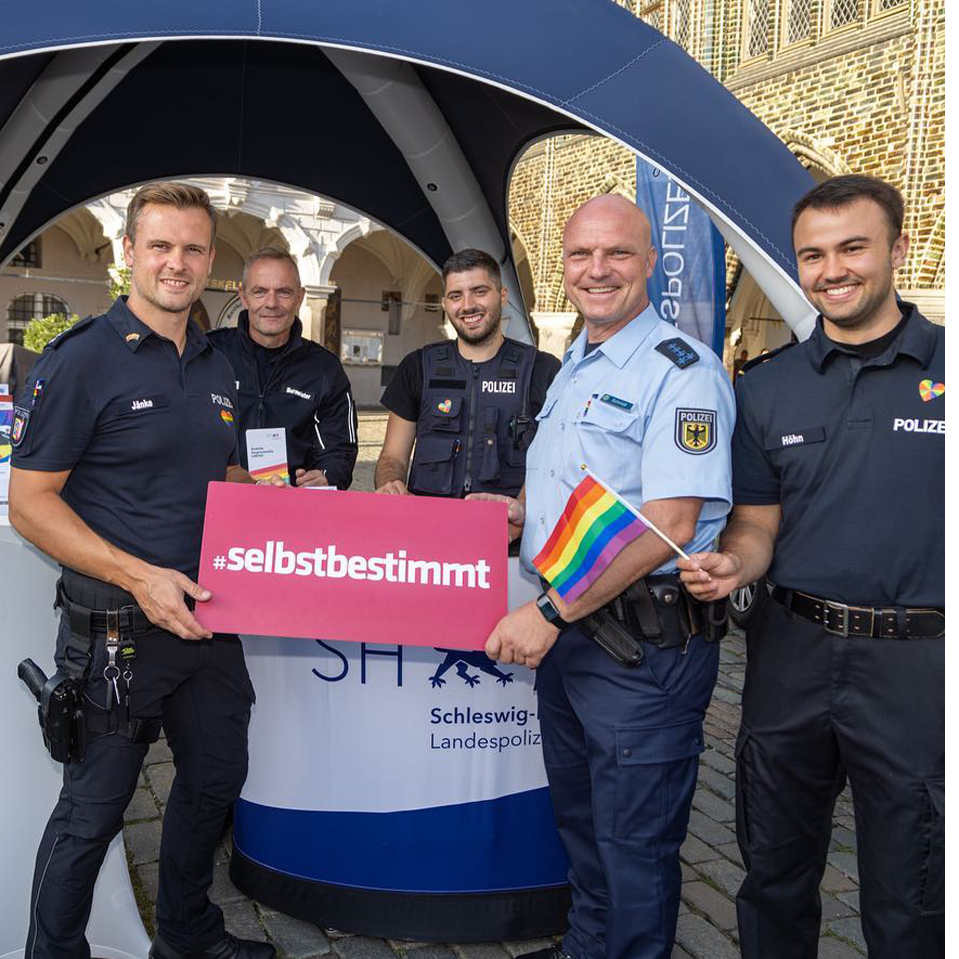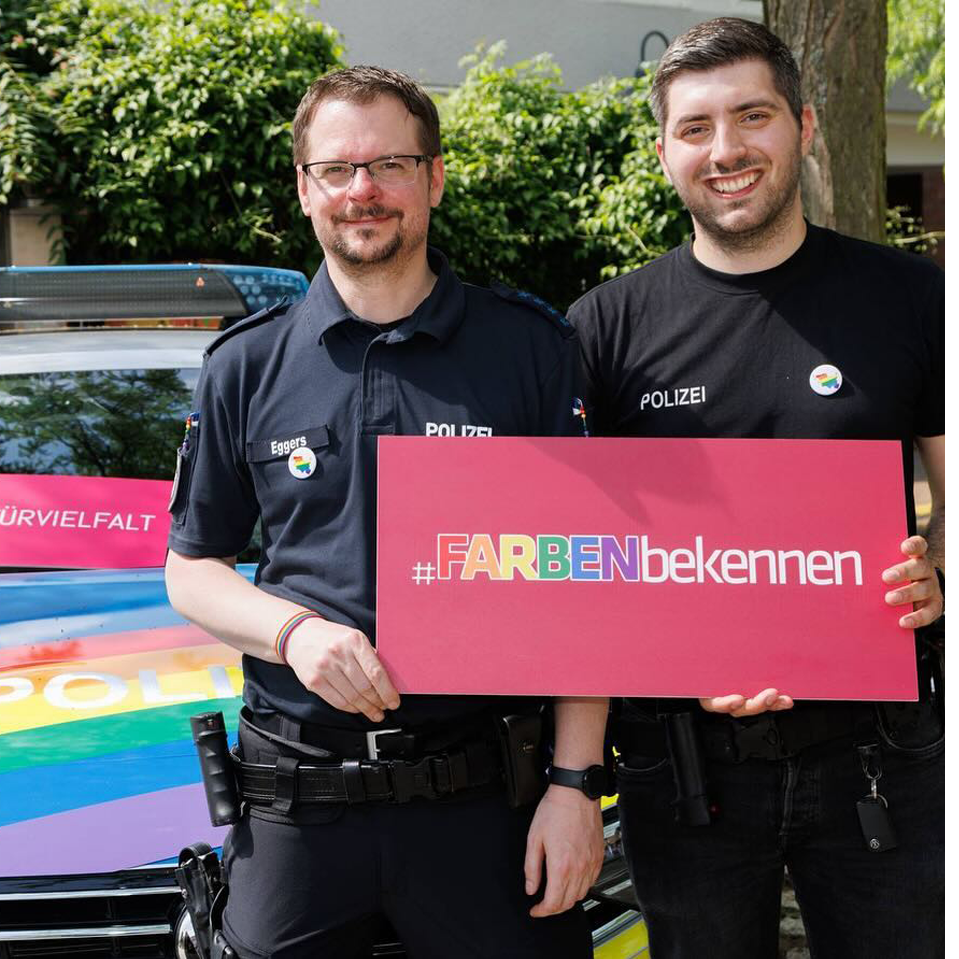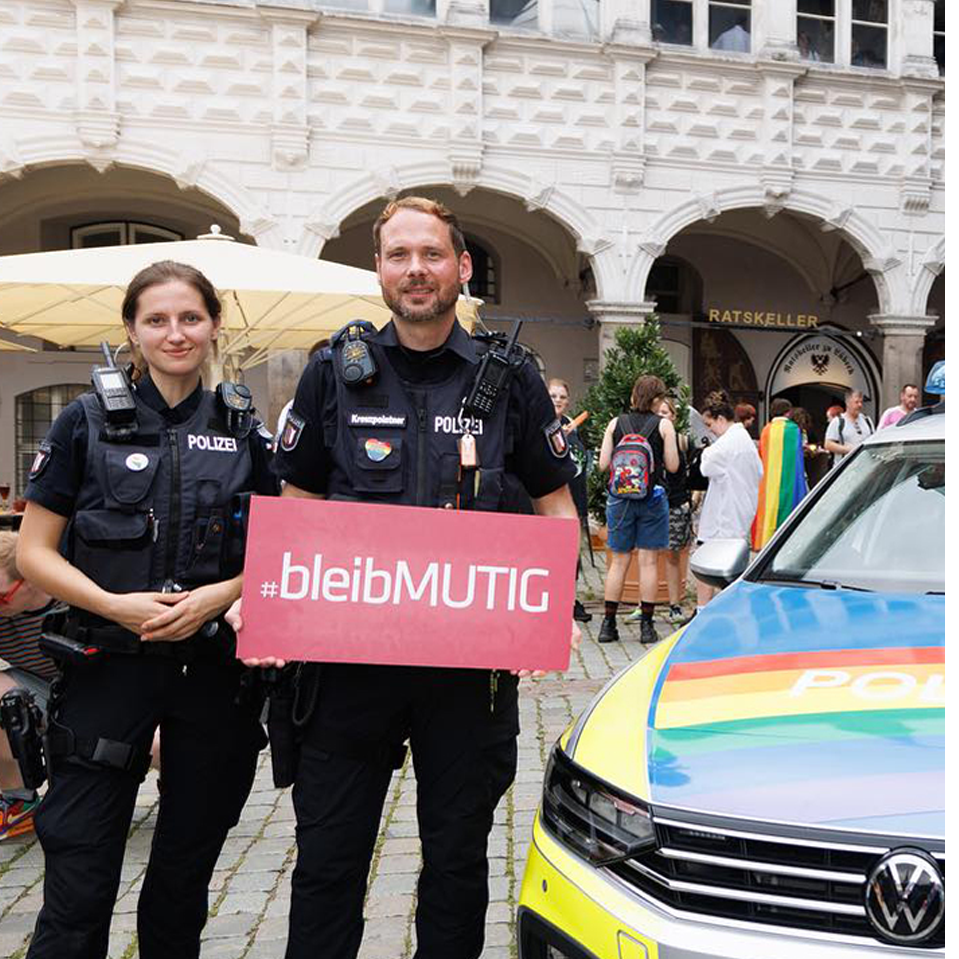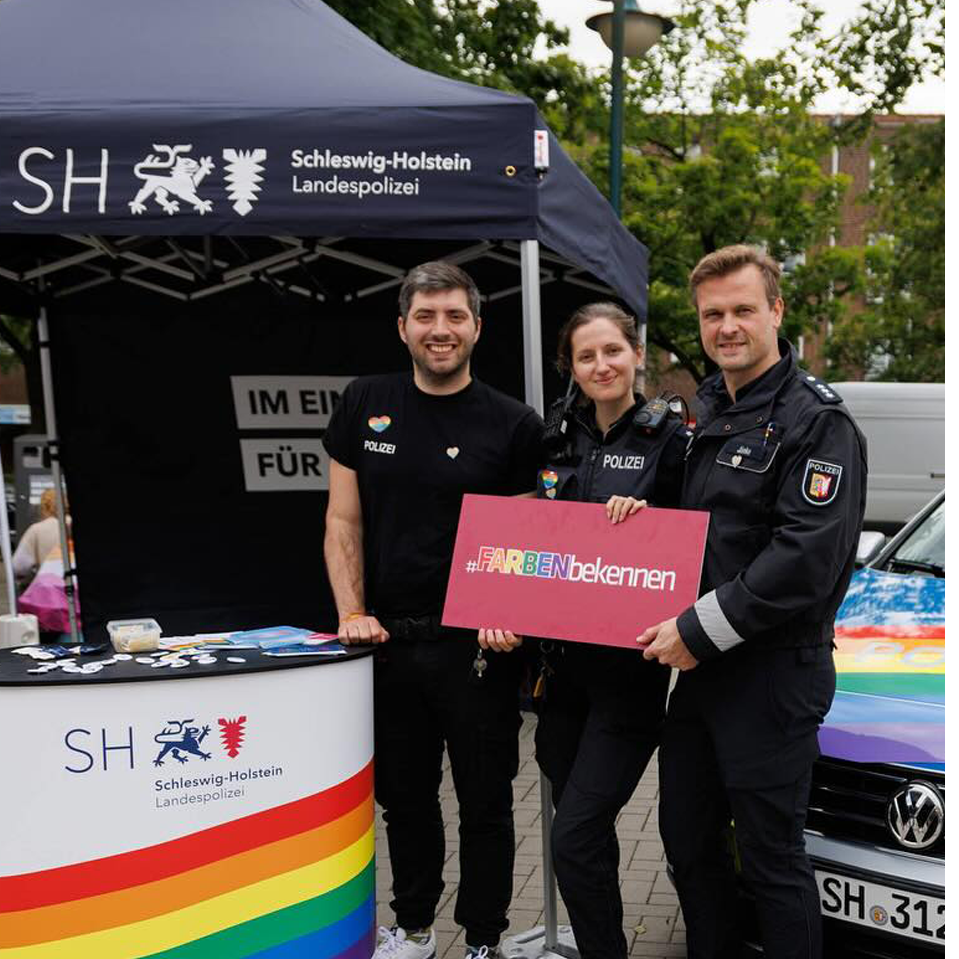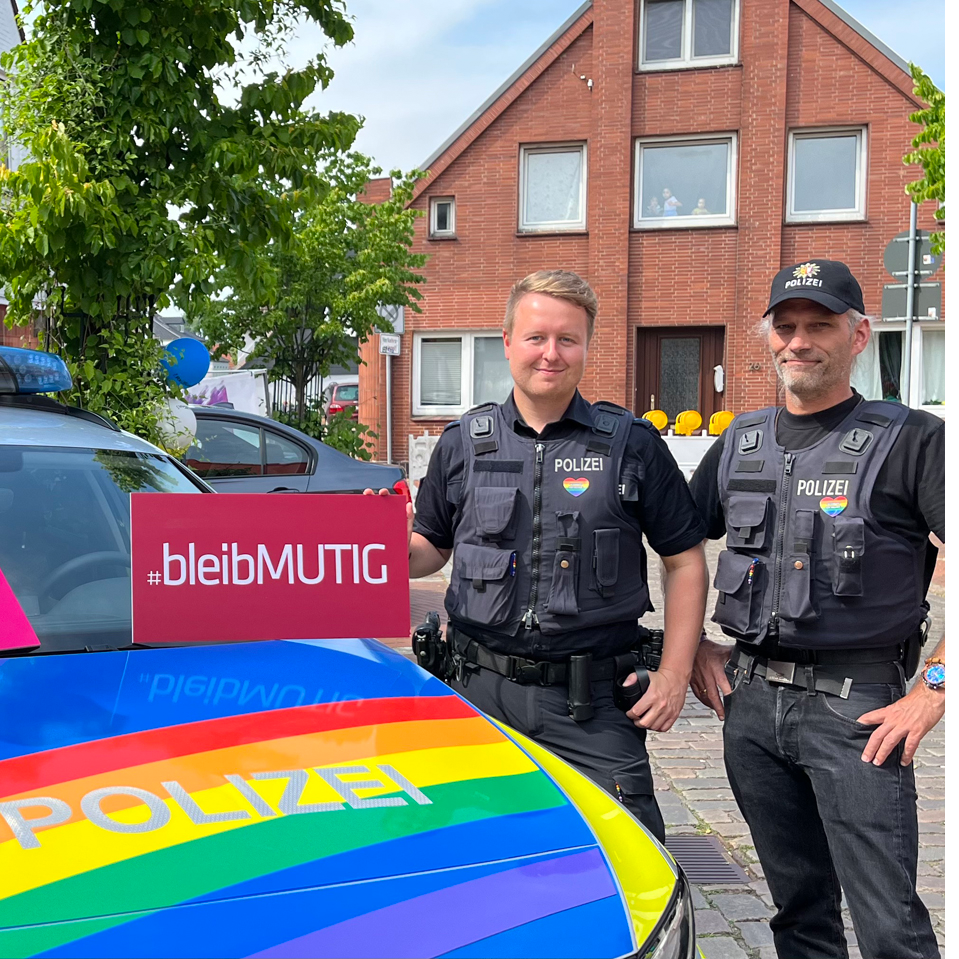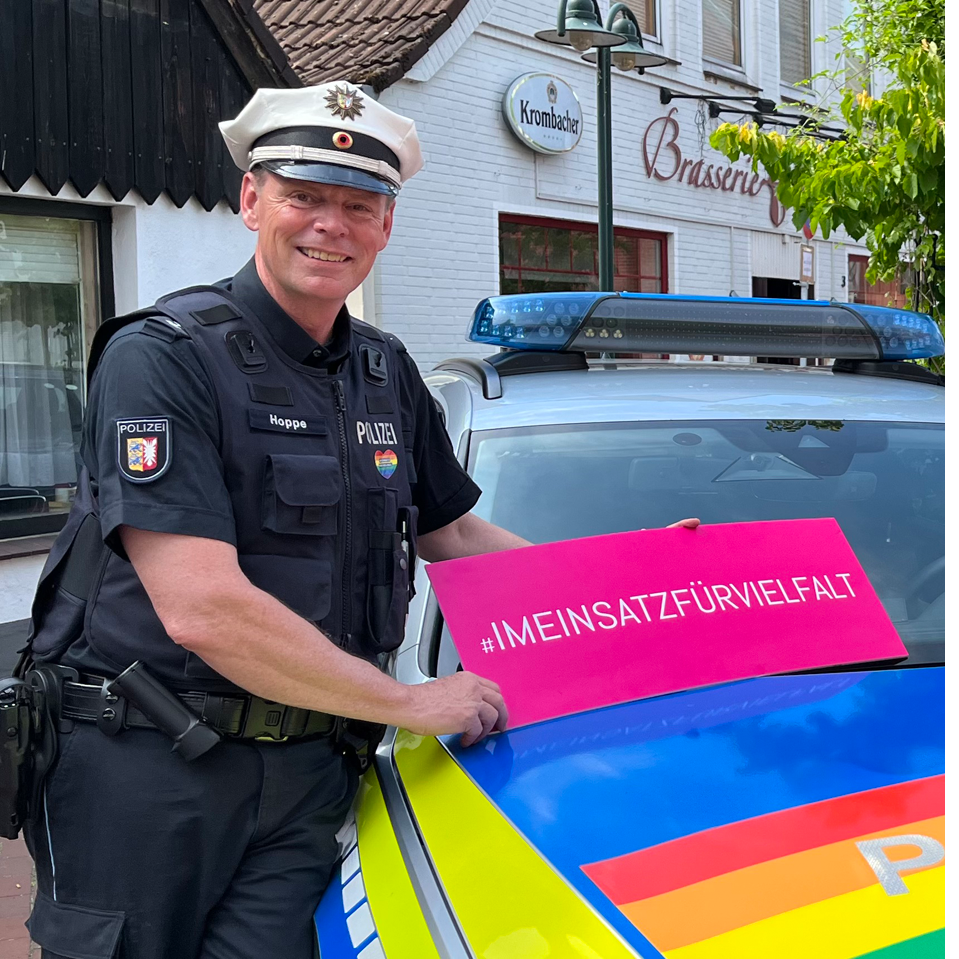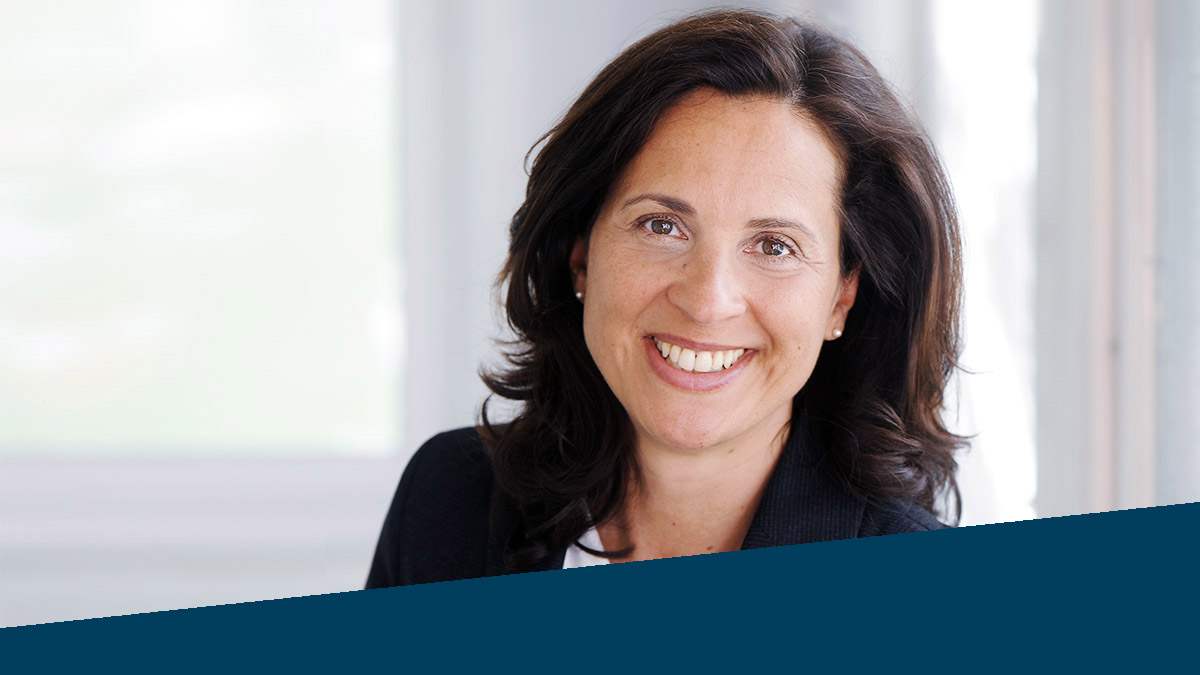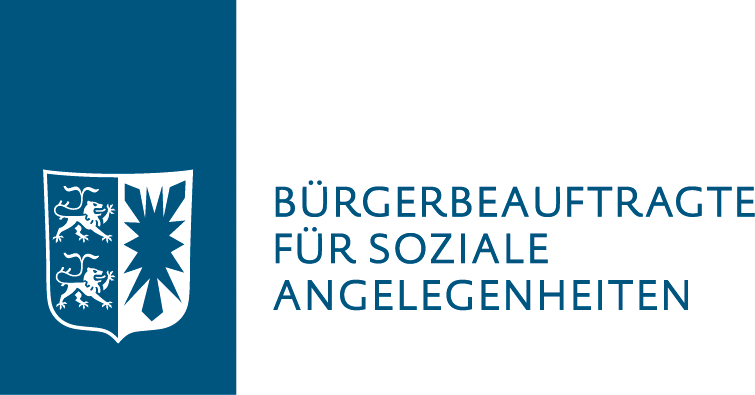If you have the impression that the police have treated you
- inappropriately or disrespectfully
- not seriously as a lesbian, gay, bisexual, trans*, inter* or queer person or
- even had to experience derogatory remarks or the like
you can and should complain about the officers. A factual complaint will not have any negative consequences for you.
Every person has the right to complain about the police and to be informed of the outcome of the supervisory investigation.
In principle, you or witnesses can submit a complaint to any police station, the LGBTIQ* central contact point or the police commissioner. A written complaint can be submitted informally by email, post or via the online police station. No matter where you turn, the case will be forwarded to the right place. Even if the complaint is not subject to any deadlines, it is advisable to report it as soon as possible.
To the website of the Commissioner for the Schleswig-Holstein State Police.

